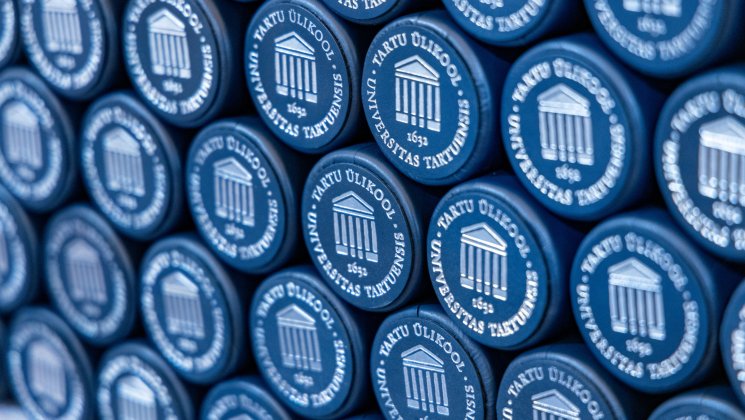Doctoral defence: Tiina Paet „Võõrainese kinnistumine eesti keeles: keelekorralduslik ja leksikograafiline vaade“
On 31 October 2023 at 14:15 Tiina Paet will defende her doctoral thesis „Võõrainese kinnistumine eesti keeles: keelekorralduslik ja leksikograafiline vaade“ („Fixation of loanwords and foreign words in Estonian from the point of view of standardization and lexicography“) for obtaining the degree of Doctor of Philosophy (Estonian language).
Supervisors:
Professor Emeritus Urmas Sutrop (University of Tartu)
PhD Peeter Päll (Institute of Estonian Language)
Opponent:
PhD Pirkko Nuolijärvi (Institute for the Languages in Finland)
Summary
The language of a people and their history are closely related; through borrowing words, we are also connected to the history of the peoples with whom we have come into linguistic contact. Vocabulary is the most changeable part of a language because societal changes are most clearly reflected in changes in vocabulary, and the influence of other languages is usually most noticeable in loanwords. The subject of this lexicological dissertation is the use of foreign elements (adapted and unadapted foreign words) in the Estonian language. The theoretical aim of the dissertation is to demonstrate what encourages and inhibits changes in the orthography of foreign words and to create a framework for handling foreign elements in general language dictionaries. The practical aim is to offer updated principles for dealing with foreign elements entering the language, especially with regard to their lexicographical presentation in the Estonian Language Institute's Combined Dictionary and the Dictionary of Standard Estonian (ÕS) to be published in 2025. Lexicographical presentation means the comprehensive description of vocabulary units, which includes not only the form of the word but also its meaning and usage.
Over the last decade, there has been a shift towards usage-based corpus planning in Estonia, together with a more descriptive approach and an increased role for scientific research. The fact that dictionaries are now being compiled online also means greater public scrutiny of the process and the issues that come with it. All of this has led to a need to update and formulate the principles of corpus planning, including aspects related to the adaptation of foreign elements, such as where the boundary is drawn between an acceptable variant and a spelling mistake, how to deal with deviant spellings and forms that do not conform to the existing language rules (such as in unadapted foreign words), common phonetic adaptations, and the mixing of declension patterns, changes in word meanings, and so on.
The main material for the research comes from dictionaries (mostly foreign word and standard language dictionaries) and dictionary databases, with background material from the Estonian Language Institute’s language advice database. The dissertation relies on ways foreign words have changed so far and takes a usage-based approach. Although modern lexicography and corpus planning increasingly apply usage-based principles (e.g., in decisions by the language committee) and the results of scientific research (changes to the Combined Dictionary and the Dictionary of Standard Estonian in 2025, which rely on the results of research articles), there has not been enough research into how norms function and which norms do not work. This dissertation aims to fill this gap. The results of the dissertation show that the boundary between a variant and a spelling mistake is largely a question of intuition and convention. It is difficult to establish a clear boundary between an acceptable linguistic change and a spelling mistake, but if usage shows that many language users frequently "err" in favour of a specific form, there must be a reason for it that deserves investigation. Based on the research, I have proposed a criterion that could be used in practical lexicography: if a non-standard variant is used by at least 20% of users compared to the normative variant, it may be worth considering including it as an alternative spelling.
The main aspects of changes in the spelling of foreign words are the source language (its structure), the form of the borrowing in the source language and the target language, the situation of the loan, and corpus planning decisions. The Estonian language has been in contact most extensively with German and Russian, and most of its loanword stock has been borrowed from German. The process of re-borrowing is currently taking place primarily through the dominant language of English. In my thesis, I have come to the conclusion that in a general language dictionary, such as the Estonian Language Institute's Combined Dictionary, descriptive and prescriptive information units can be integrated by adding the history of an explanation or recommendation.
The defence can be followed in Zoom https://ut-ee.zoom.us/j/98182121961?pwd=RWRGWHIvR2Rabldaa1Q0Sy8vZWR3dz09
Meeting ID: 981 8212 1961
Passcode: 349793



